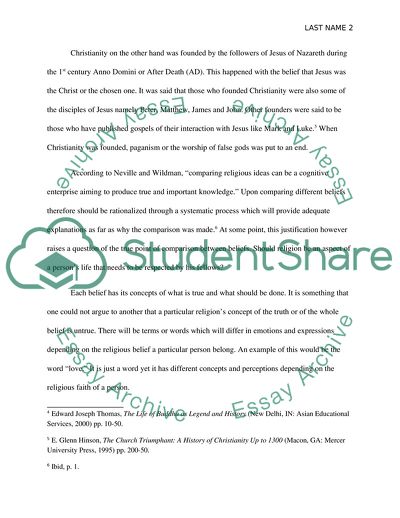Cite this document
(Comparing Religions: Buddhism and Christianity Report Example | Topics and Well Written Essays - 2250 words, n.d.)
Comparing Religions: Buddhism and Christianity Report Example | Topics and Well Written Essays - 2250 words. https://studentshare.org/religion-and-theology/1767934-a-comparison-of-buddhism-and-christianity-and-the-extent-to-which-each-can-be-trans-religious
Comparing Religions: Buddhism and Christianity Report Example | Topics and Well Written Essays - 2250 words. https://studentshare.org/religion-and-theology/1767934-a-comparison-of-buddhism-and-christianity-and-the-extent-to-which-each-can-be-trans-religious
(Comparing Religions: Buddhism and Christianity Report Example | Topics and Well Written Essays - 2250 Words)
Comparing Religions: Buddhism and Christianity Report Example | Topics and Well Written Essays - 2250 Words. https://studentshare.org/religion-and-theology/1767934-a-comparison-of-buddhism-and-christianity-and-the-extent-to-which-each-can-be-trans-religious.
Comparing Religions: Buddhism and Christianity Report Example | Topics and Well Written Essays - 2250 Words. https://studentshare.org/religion-and-theology/1767934-a-comparison-of-buddhism-and-christianity-and-the-extent-to-which-each-can-be-trans-religious.
“Comparing Religions: Buddhism and Christianity Report Example | Topics and Well Written Essays - 2250 Words”. https://studentshare.org/religion-and-theology/1767934-a-comparison-of-buddhism-and-christianity-and-the-extent-to-which-each-can-be-trans-religious.


